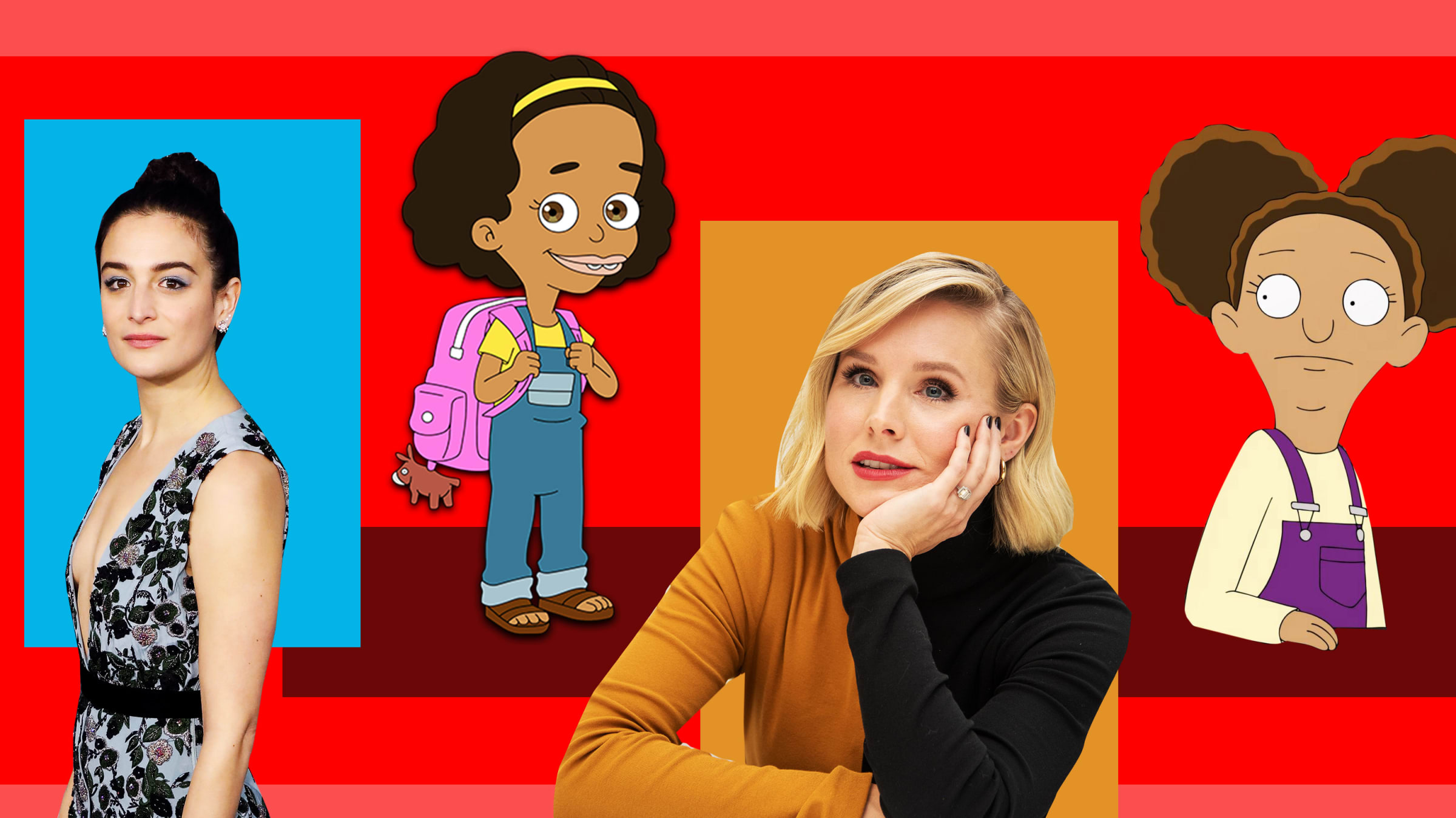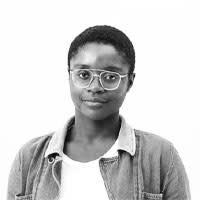The Insidious Racism of White Actors Voicing Black Animated Characters

Photo Illustration by The Daily Beast/Getty
Both Kristen Bell and Jenny Slate, two white actors, have announced plans to quit voicing Black animated characters. But the practice is a glaring example of how deep the rot goes.
It seems that the world of animated television has finally decided to recast some of its Black characters with Black voice actors. Today, Jenny Slate stepped down from her role on Netflix’s Big Mouth as the mixed-race Black character Missy, whom she played for four seasons, and Kristen Bell has relinquished her newly-cast role as Molly, also a mixed-race Black character on the Apple TV+ animated show Central Park. This comes well after Hank Azaria finally agreed to stop playing the Indian character Apu on The Simpsons, after 20 years of the racist portrayal. Diane Nguyen, a mixed-Vietnamese character on the Netflix series BoJack Horseman, was played by Alison Brie, a white woman. Showrunner Raphael Bob-Waksberg eventually expressed regret over the decision, as well as the entirely white cast of the show, which mainly featured talking animals.
It makes sense that the white showrunners on these series initially and ongoingly interpreted representation to be purely surface-level. After all, decorating your show with Black and Brown faces, animated or not, does nothing to address the systemic racism in Hollywood—instead, it’s often a tool to anoint a token and/or preemptively silence critics. In the case of animation, the choice to have popular white actors portray Black characters hammers in the racist way major institutions often weaponize the idea of meritocracy: White people earn their opportunities; non-white people are given them.
It doesn’t surprise me either that all parties involved couldn’t compute, at least not for a while, how insidious it is to have white people use Black and Brown avatars to further their careers and fatten their wallets. Nearly everyone has heard a random white person offensively impersonate a non-white person, exaggerated accent and all, putting on a little minstrel show for friends while assuming innocence. In the everyday world, these imitators are rarely called out. That Slate didn’t use AAVE to play Missy represents a more liberal take on minstrelsy—a kind of reverse “colorblind” casting, if you will, where as long as the Black girl “sounds white” (a stereotyping way of understanding vocal expression that’s been adopted by all kinds of people) she might as well be played by a white person.
Animated shows with diverse casts like Tuca & Bertie—featuring Tiffany Haddish and Ali Wong in the lead roles—and The Boondocks were abruptly canceled despite garnering fervent fans. Tuca & Bertie, which was created by illustrator and Bob-Waksberg’s Bojack collaborator Liza Hanawalt, was picked up by Adult Swim after a season at Netflix while The Boondocks will find a new life on HBO Max. The Daria spinoff, Jodie, helmed by Grace Edwards, a Black woman, and with Tracie Ellis Ross voicing the lead role, has been picked up by Comedy Central.
Hollywood, even in its seemingly more open streaming iteration, comprises a white, mostly male gatekeeping system wherein the presumption of innocence remains with the people in power and those they give power to. So the question that remains is whether any Black women animators and writers beyond Edwards, for instance, will be able to get their own animated series off the ground, whether or not they “represent” Black animated people. It’s a question that continues to be inconvenient for those who possess the keys to the industry and will require much more than some last-minute recasting. But as history has indicated, the road away from willful ignorance is indeed long and winding.
